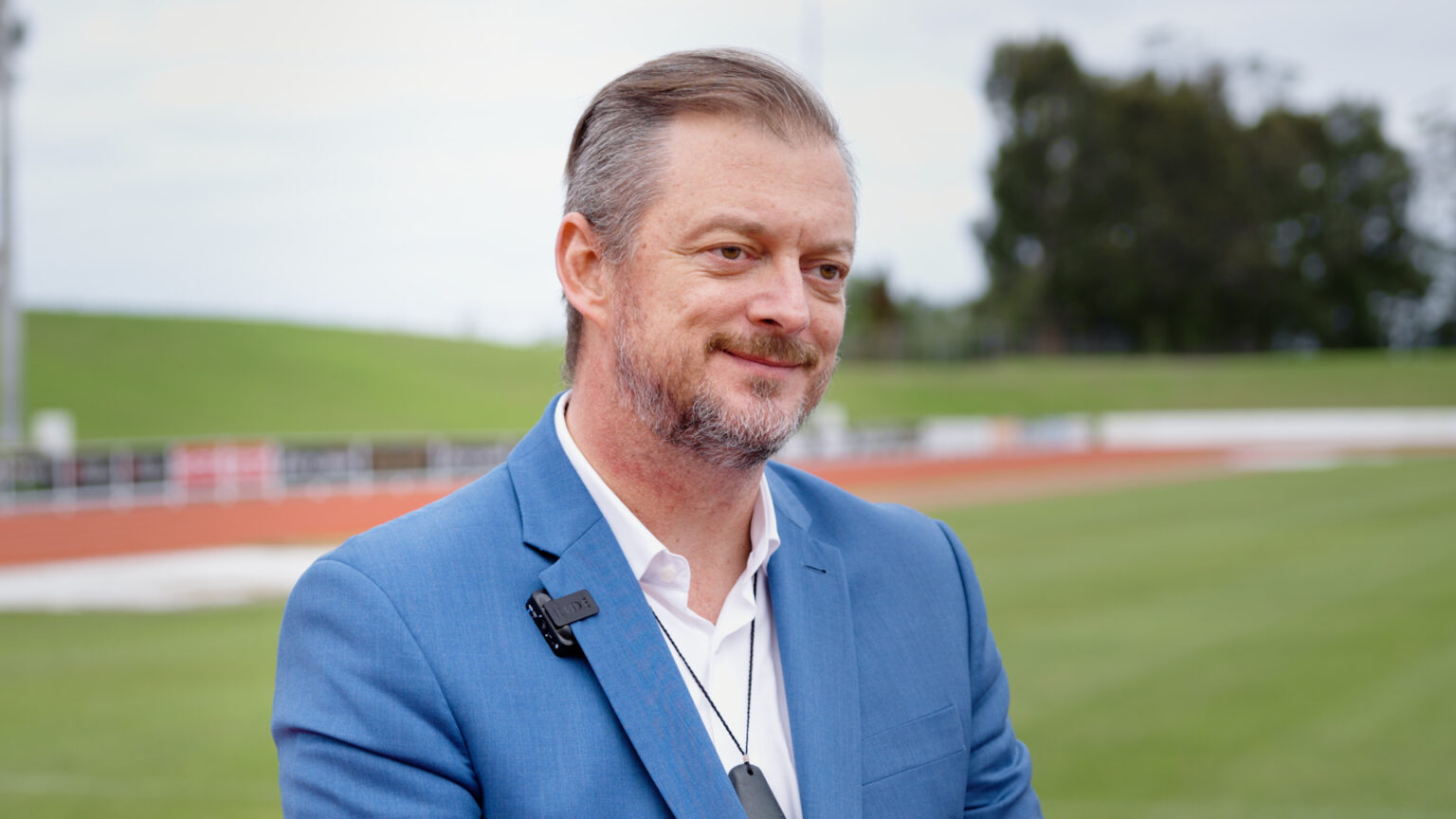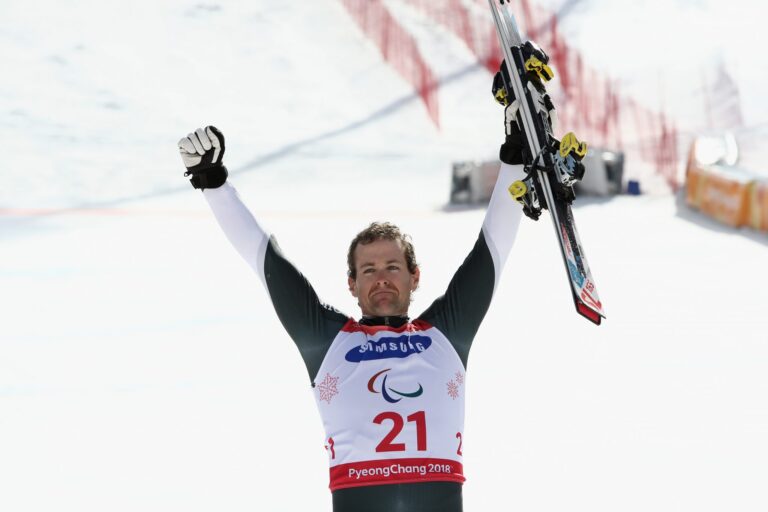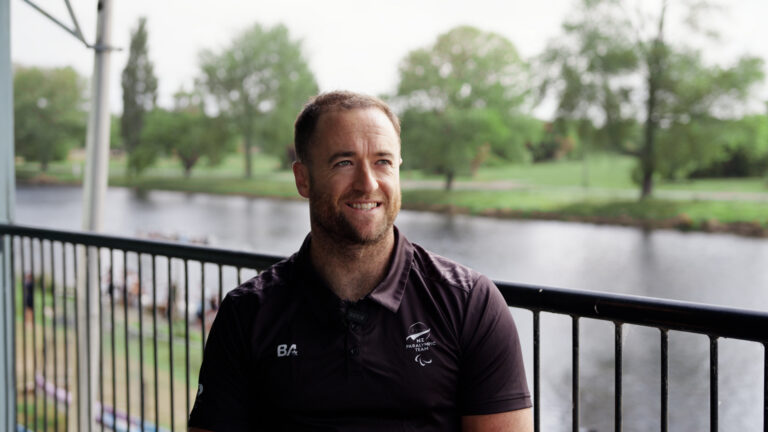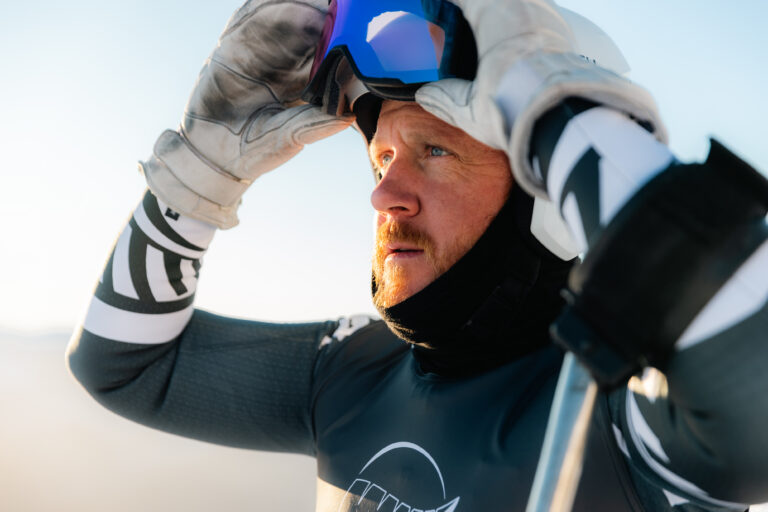International Paralympic Committee President Andrew Parsons last week visited Aotearoa New Zealand as part of a three-day tour. We caught up with the Brazilian-born president to talk about his eight years as President and his pride in fulfilling the role.
You are a proud Brazilian from a multi-cultural background. Can you explain more?
I’m of English, Scottish, Irish and Norwegian heritage. My mother is English and my father Argentinian of Irish descent, which given I’m Brazilian can be tricky. I am first generation Brazilian-born.
What is your sporting background?
Like any Brazilian boy, I played football. But I tried many sports; volleyball, futsal, basketball, a little bit of athletics, cycling with my BMX but nothing serious. I was super engaged in sport. I was never the best player on the team, but I was always the captain, and I think that helped exercise leadership from a young age.
Can you explain about your journey into Para sport?
I started as an intern aged 20 in the communications department of the Brazilian Paralympic Committee in 1997. At that time, I had read about the Paralympics but I was not too aware of what it was. Because I worked in comms and I got to profile the Para athletes and know their stories, I remember two weeks after joining as an intern telling my parents I would like to do this for the rest of my life! Some 28 years later, I’m still here (in the Paralympic Movement), so I must have made the right choice.
When did you first harbour an ambition to be IPC President?
I was president of the Brazilian Paralympic Committee around 2009 when I had a conversation with my predecessor Sir Philip Craven. He asked me “what about becoming IPC President?” I said, “yes, but following a Paralympian (Andrew is able-bodied) I did not think it would be possible. But he used a very strong word, that I won’t repeat and said “that is not right. We need the right person.”
Since becoming president in 2017 has the role been all you hoped it would be?
I think even more so. I remember two weeks into my presidency there was an earthquake in Mexico, and we had to postpone the World Para Swimming Championships and World Para Powerlifting Championships. We have faced a pandemic, there have been many challenges but the opportunity to serve and shape the Movement is a privilege. Some things are more challenging than expected. Change is a little slower to implement than at a National Paralympic Committee because of the size of the organisation, but fulfilling the role of President has been the greatest experience of my life.
As IPC President what are you most proud of?
The closer the Paralympic Movement is to the disability rights movement. In 2017 we were still learning by liaising with different organisations and positioning the Paralympic Movement. By Paris 2024 we spoke about an inclusion revolution – that we are a sporting organisation driving a social movement. The better we are as a sports organisation, the bigger impact we can make to people with a disability. That is what I am most proud of.
How significant has been the role of New Zealand in the Paralympic Movement?
New Zealand has played an incredible role. You have incredible Para athletes and leaders. Duane Kale (Paralympian #96 Duane Kale MNZM) IPC Vice-President is a great person to work with. We are very different as characters but that is probably why it works so well. The country has also hosted important events and shown to the world that not having a massive population is not an obstacle to delivering great performances.
What factors contributed to the success of the Paris 2024 Paralympic Games?
We are seeing a general growth of the Paralympic Movement thanks to the work that the national and regional federations are doing. By developing Para athletes and providing better pathways from grassroots to the elite – this resulted in the sport at Paris 2024 being stronger than ever before. There was also a great understanding from the French people and the French government that they need to maximise the opportunity to create a long-lasting legacy for the Paralympians.
It helped too that the venues were fantastic, and the spectators really embraced the Paralympic Games. The silent Mexican Wave at the Blind football was amazing to see and the packed crowds at beautiful venues such as Versailles also helped the experience. Incredible Para athletes performing at amazing venues in a great atmosphere was a recipe for success.
How do you now build on the success of Paris 2024?
Next we have the Milano Cortina 2026 Paralympic Winter Games. Because of the Dolomites it will probably be the most beautiful Paralympic Winter Games ever while the Opening Ceremony in the Arena di Verona, which was built in the First Century is totally accessible – which proves that anything can be accessible. China enjoyed a very strong home Games in Beijing 2022, so I know the winter powerhouse nations would really like to challenge China.
The International Olympic Committee and IPC have developed closer ties in recent times. How has that benefited the Paralympic Movement?
The IOC is our greatest partner and working with them more closely we hope to create something that is bigger than the sum of its parts. Looking ahead to Milano Cortina 2026 and LA2028 we hope to amplify the reach of the Paralympic Movement by growing broadcast and sponsorship. We hope to take the next step in the partnership which will allow not only the IPC to grow but also the NPCs and international federations.
What are the biggest challenges that face the IPC?
It is how we keep up with the success of previous editions. Paris 2024 was great, but now the question is how we can build on the specificities of LA 2028 and the US to go to the next level. The US is such an important country, it provides great opportunities in broadcasting, fundraising and commercial partnerships but we also have to transform America to become a more inclusive nation. We have all the right ingredients there to make it an even more inclusive society and the Paralympians could be the catalysts to take America to the next stage in terms of inclusion.
What are your future aspirations for the Paralympic Movement?
It is to get the IOC and IPC to the next level because this will open more doors for Paralympians around the world and take visibility to the next level. We also need to consolidate our position as the most transformative sports event on the planet. Paris 2024 was really good, but I think we need a couple more Paralympic Games for our higher purpose to be really understood. I would also like to bring more technology into classification. That is the next step.
How would you assess your New Zealand Tour?
It’s been an incredible few days. I’ve met Paralympics New Zealand staff, Paralympians and Para athletes, government officials, the Governor-General, media, commercial partners, many different stakeholders who have contributed to the development of the Paralympic Movement here. We have a strong foundation, and I know PNZ is thinking about the next seven years because the Brisbane 2032 Paralympic Games represents a great opportunity. You have all the right ingredients to succeed – top Para athletes, leaders, a supportive Government and broadcasters. As the IPC we need to work more closely with PNZ to maximise the opportunity.
What has the role of the President of the IPC given you?
To serve the Paralympic Movement has been the biggest honour of my life. It is more than I could ask for. It has given me the love of my life, I met my wife through Paralympic sport – 22 years ago. It has made me a better man. I understand that differences are a strength. It has shaped my view of the world. I owe everything to Paralympic sport.






























